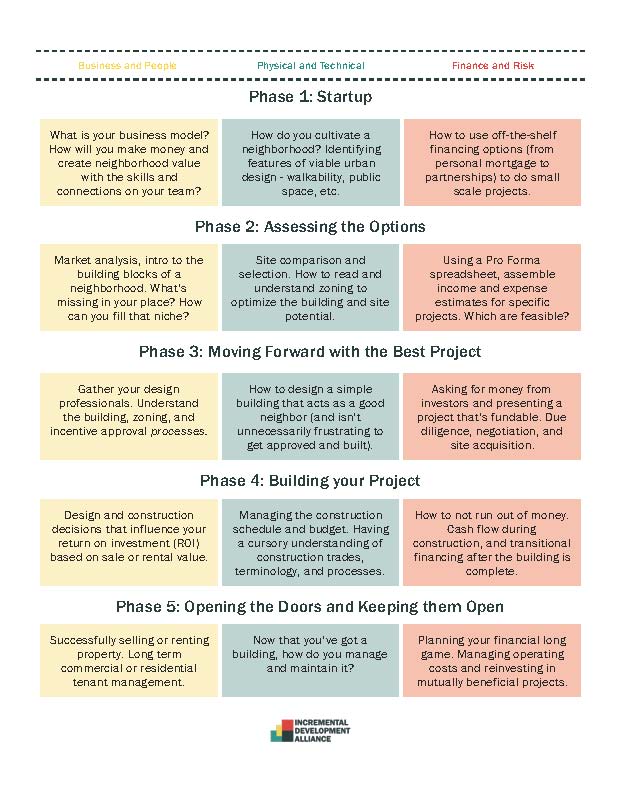 When I hear the question "How Do I get Started as a Developer?" it is usually followed by a string of questions which amount to "Can you draw me a map that will guide me through every detailed step to becoming a developer?"
When I hear the question "How Do I get Started as a Developer?" it is usually followed by a string of questions which amount to "Can you draw me a map that will guide me through every detailed step to becoming a developer?"
People who are interested in this line of work come from a wide range of starting points. A lot of them already have a fair amount of skill in one aspect or another of the built environment. They may be very accomplished in one or more specialized areas as a contractor, broker, planner, activist, architect, or property manager. They know enough about how things work to recognize that they have a lot to learn outside of the field that originally led them to development.
So let's group the skills a developer needs into 7 groups:
- Urban Design, Site Selection, Site Planning and Civil Engineering.
- Building Design.
- Deal Architecture, Pro Formas and Finance.
- Entitlements.
- Construction and Construction Management.
- Marketing, Sales, Leasing and Property Management.
- Communication and Follow Through.
Very few people master all of those skills. If you start with small projects, you can gain an overview, and understanding when they are needed at the various stages of a project. You get a sense of the basics for each skill set. If you don't have the skill which the project requires, you can't go without. So you should borrow or rent the needed skill. Look for people who are genuinely interested in your project and who are actually happy to teach you about their specialty. I figure a developer does not have to know everything, but they should have a good idea who to call before it is too late.
After a number of Small Developer Boot Camp (calendar here) Jim Kumon and Gracen Johnson have put together the graphic above which has three types of skills and activities allocated over 5 phases of a development project. I think it is a substantial improvement over the list of 7 skills because it give the reader a sense of when they need to know what, or when they have to find help as they move their first project from idea into an actual building. This is a work in process, so comments and critiques are welcome and needed. What do you think?



